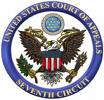Seventh Circuit Criminal Case of the Week: Silence and Consent
 In 2006, Jarrett James robbed the same bank in Middleton, Wisconsin, on two different occasions, getting away with about $120,000. He was later apprehended, convicted in federal court, and sentenced to 42 years in prison. His appeal centered on the government’s warrantless seizure of a safe from his mother’s home. The safe contained a gun matching a description of the weapon used in one of the robberies. When the government sought to use the gun as evidence against him at trial, James argued unsuccessfully that the gun should be suppressed because it was obtained in violation of his Fourth Amendment protection against unreasonable searches and seizures.
In 2006, Jarrett James robbed the same bank in Middleton, Wisconsin, on two different occasions, getting away with about $120,000. He was later apprehended, convicted in federal court, and sentenced to 42 years in prison. His appeal centered on the government’s warrantless seizure of a safe from his mother’s home. The safe contained a gun matching a description of the weapon used in one of the robberies. When the government sought to use the gun as evidence against him at trial, James argued unsuccessfully that the gun should be suppressed because it was obtained in violation of his Fourth Amendment protection against unreasonable searches and seizures.
In United States v. James (No. 08-3327), the Seventh Circuit (per Judge Flaum) also rejected the Fourth Amendment claim and affirmed James’ conviction. Specifically, the court held that the seizure complied with the Fourth Amendment because James’ mother consented to a police officer taking the safe. The holding is notable because James’ mother never expressly agreed to the seizure; the case thus illustrates circumstances in which Fourth Amendment consent may be inferred from silence. The case also raises interesting questions regarding the mother’s motivations and the underlying parent-child dynamics.

 On several occasions recently, the Seventh Circuit has been critical of statements made by prosecutors to jurors. (See, for instance, my posts
On several occasions recently, the Seventh Circuit has been critical of statements made by prosecutors to jurors. (See, for instance, my posts  The Seventh Circuit had some interesting commentary on a number of different sentencing factors in
The Seventh Circuit had some interesting commentary on a number of different sentencing factors in